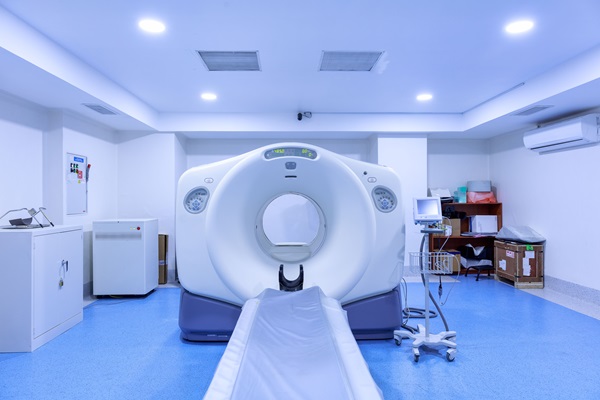The Importance of Regular Health Checkups: Staying Proactive About Your Well-Being

Though they play an important role in wellness, regular health checkup are often overlooked. If you only go to the doctor when you get sick or something goes wrong, you could be missing out on key opportunities to avoid health problems and support your overall wellness. If you want to be proactive about protecting your overall well-being, regular health checkups are a must.
What is a regular health checkup?
Also known as a yearly physical, these are usually annual preventive care appointments a patient makes with an urgent care or primary care provider. The checkup will vary by age, health circumstances, and sex assigned at birth but typically includes the following:
- Collecting basic health info such as height, weight, and vital signs
- Physical exam of head, neck, abdomen, and extremities
- Checking the lymph nodes, breathing, and reflexes
- Reviewing family and personal health history
- Checking in about any chronic conditions
The healthcare provider may discuss test results, recommend future screenings, and address any concerns they noticed during the exam. They will also make applicable health recommendations and ask the patient if they have any questions or concerns.
How regular health checkups support well-being
These regular checkups allow urgent care and primary care providers to assess a patient’s health, monitor changes over time, identify potential risks or issues, and advise them on maintaining their overall health. Here are the key ways they support the patient’s well-being:
Detecting health problems early
One of the most significant benefits of regular health checkups is the early detection of health issues. Many serious conditions, such as cancer, heart disease, and diabetes, do not have noticeable symptoms in their early stages when they are easiest to treat. Regular health checkups increase the likelihood that a healthcare provider will not only catch one of these conditions in the early stages but also identify early warning signs and risk factors.
High blood pressure, also known as hypertension, is a key example of a condition that can often go unnoticed for some time. Known as the “silent killer,” hypertension can cause serious damage before it is diagnosed. However, if the patient’s blood pressure is monitored during regular health checkups, there is a good chance the provider will catch the problem before it has the chance to cause significant damage.
Managing preventive healthcare
Health checkups allow a provider to oversee and manage preventive care plans. Preventive health plans often include vaccination schedules, screening tests, and guidance on healthy living. With a personalized health plan, patients can take a proactive approach to their well-being and reduce their chances of developing preventable diseases.
By reviewing factors such as family history, lifestyle, and existing health conditions, a provider can recommend specific measures to help lower the risk of chronic illnesses. For example, they may advise a patient with a family history of diabetes to have regular blood sugar screenings and follow a certain diet and exercise plan to help prevent the likelihood of developing the condition. Similarly, those with a higher risk of heart disease may receive guidance on cardiovascular health, such as maintaining a healthy weight and managing stress.
Building a relationship with a provider
Through regular health checkups, patients can develop an ongoing relationship with a healthcare provider. This relationship supports continuity of care and helps ensure personalized and consistent healthcare. A trusted relationship with a provider also encourages patients to participate more actively in their health. When patients feel comfortable with and trust their providers, they are more likely to ask questions, seek advice, and follow through with recommended treatments. This engagement is critical in ensuring long-term success in preventive care and health management.
Finding a provider for regular health checkups
There are several ways to find a provider for regular checkups. Those with insurance can start by checking with their insurance company for a list of covered providers. Also, consider seeking recommendations from friends, family, and coworkers. Thanks to the internet, patients can find a wealth of information on local urgent care and primary care providers at their fingertips. They can use search tools on websites for health organizations or do an internet search for providers in their area. The internet even provides access to reviews of providers from actual patients. These resources should allow prospective patients to locate several local providers with positive ratings who fit their needs.
Make regular health checkups a priority
Do not wait until you are sick to visit a healthcare provider. By having regular health checkups, you are taking a proactive approach to preserving your health and well-being. Call our team today to learn how we can help you stay healthy.
Request an appointment here: https://tx-urgentcare.com or call Texas Urgent Care & Imaging Center at (832) 941-1894 for an appointment in our New Caney office.
Check out what others are saying about our services on Yelp: Health Checkup in New Caney, TX.
Recent Posts
X-rays are popular tools medical professionals use to diagnose a wide range of health conditions quickly and safely. They allow these professionals to see inside the body without invasive procedures, making them invaluable in urgent and primary care settings. Whether identifying fractures, monitoring chronic conditions, or detecting abnormalities, X-rays are critical in ensuring timely and…
A CT scan, or computed tomography scan, is a diagnostic tool that provides detailed images of the body’s internal structures. This non-invasive procedure helps medical professionals diagnose and monitor various conditions, from injuries to chronic illnesses. Knowing what to expect during a CT scan can ease concerns and prepare patients for a smooth experience.A CT…
If you work in public transportation, you may need to have a DOT drug screening. The Department of Transportation (DOT) regulates this test and requires it for you. You might be wondering what this test is like. Keep reading to learn more.Congress passed the Omnibus Transportation Employee Testing Act in 1991. Congress knew that the…
Walk-in clinic provide convenient, accessible health care for non-emergency medical needs, making it an ideal choice when immediate attention is necessary. Understanding when to visit a clinic can help patients save time, avoid unnecessary trips to the emergency room, and receive quality care for their health concerns. These clinics handle various issues, offering fast, professional…


